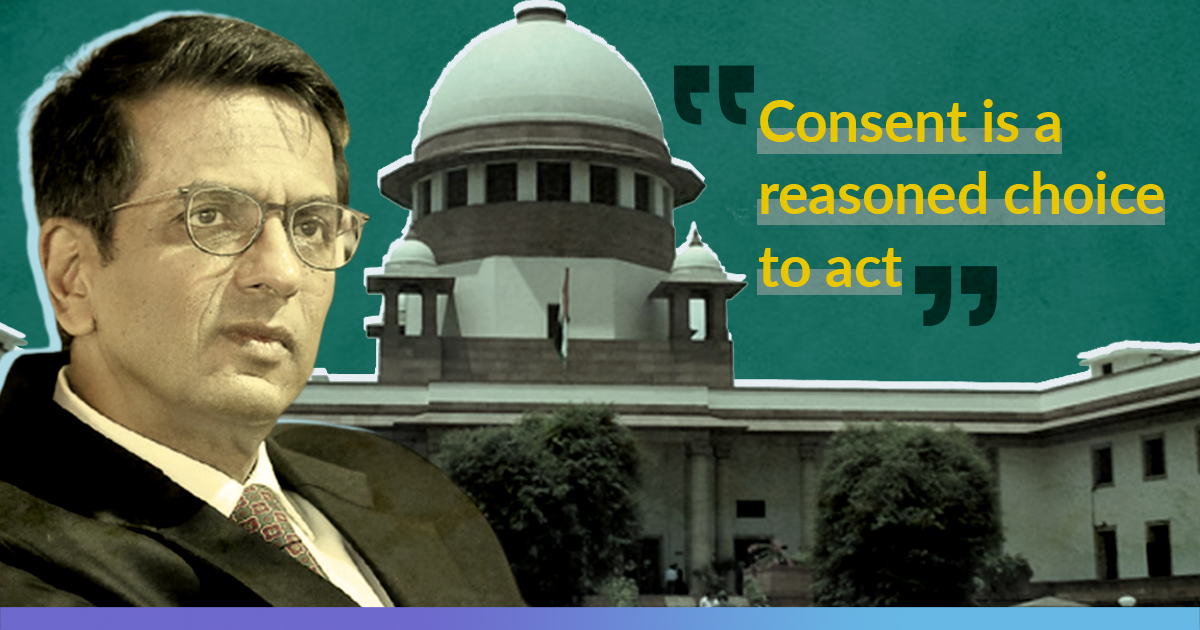The Supreme Court in a judgement said that if a woman indulges in consensual sex with a man on a promise of getting married to him but knows that the promise cannot be fulfilled then she cannot accuse the man of rape.
The two-judge bench comprising of Justice Dhananjaya Y. Chandrachud and Justice Indira Banerjee read, “the “consent” of a woman with respect to Section 375 must involve an active and reasoned deliberation towards the proposed act. To establish whether the “consent” was vitiated by a “misconception of fact” arising out of a promise to marry, two propositions must be established. The promise of marriage must have been a false promise, given in bad faith and with no intention of being adhered to at the time, it was given. The false promise itself must be of immediate relevance or bear a direct nexus to the woman’s decision to engage in the sexual act.”
The judgement points out the legal interpretation of the term “consent” of women concerning Section 375 (Rape) in cases where consent depended on the promise to marry. It said that the prosecution must be able to prove that the promise to marry was with no intention to honour it and that such a commitment was the sole reason why a woman agreed to a sexual relationship.
The judgement came after a rape case filed by an Assistant Commissioner of Sales Tax against a Deputy Commandant of CRPF. The couple knew each other since 1998 and were in an intimate relationship from 2004 and also shared a roof on multiple occasions. In 2014, the man raised concerns about the marriage on the basis on caste differences. But both of them continued to share a sexual relationship until March 2015.
However, the complainant alleged that the accused had forcibly established a sexual relationship with her in 2008 on the promise of marriage. The lady filed an FIR against the man alleging him for his illicit relationship with another woman in 2016. However, the court quashed the FIR registered on May 17, 2016, for rape and criminal breach of trust and other offences under the Atrocities Act.
“The allegations in the FIR do not on their face indicate that the promise by the appellant was false, or that the complainant engaged in sexual relations based on this promise. There is no allegation in the FIR that when the appellant promised to marry the complainant, it was done in bad faith or to deceive her. The appellant’s failure in 2016 to fulfil his promise made in 2008 cannot be construed to mean the promise itself was false,” maintained the court, adding the complainant was aware since 2008 that were issued in the relationship, but they continued to engage in sexual relations till 2015.
Referring to the judgements, the bench made the following observations:
 In the current case, after the allegations made in the FIR, the court observed:
In the current case, after the allegations made in the FIR, the court observed:

Also Read UP: Woman Burnt Alive By Husband, In-Laws For Complaining Against Triple Talaq











